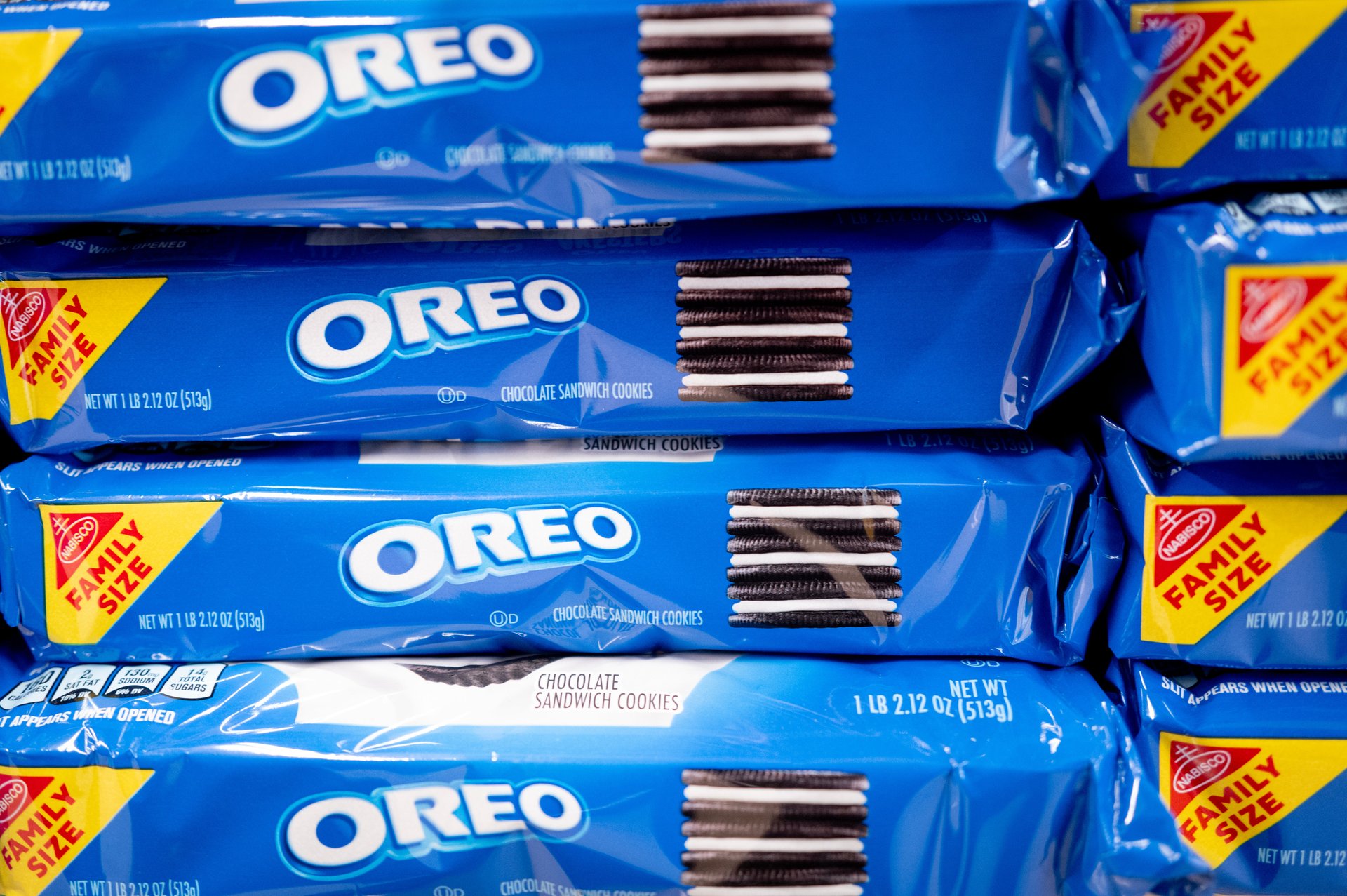The maker of Oreos is suing Aldi for copying its packaging
The lawsuit by Mondelez International underscores the price wars between name brands and in-store generic products

They may look like Oreos. The packaging uses the same colors as Oreos packaging. But the product seen on shelves of the Aldi supermarket chain are called “Original Chocolate Sandwiches with Vanilla Filling” off-brand versions of the iconic cookie sold by Mondelez International (MDLZ).
Suggested Reading
On Tuesday, the Chicago snack maker behind the original Oreos sued the U.S. branch of German supermarket chain Aldi for trademark infringement, saying their knockoffs of Oreos, Chips Ahoy and Ritz crackers are “likely to deceive and confuse customers.” Many of Aldi’s generic brand packaging use similar images and color schemes as Mondelez products, and sometimes very similar names: such as “Thin Wheats” instead of Wheat Thins.
Related Content
Aldi has operated in the U.S. for 50 years and owns the Winn-Dixie and Trader Joe’s chains. It claims to be the fastest-growing grocer in the country, with more than 2,400 stores operational in 2024 and plans to open a record 225 new stores in 2025. It has many house brands, which are part of its image as a discount grocer — one that’s poised to benefit from thrifty shoppers in the current economic turmoil.
Recently, though, Aldi’s generic brands have cost the grocer in court. In December, they lost an infringement case to Australian snack-puff company Baby Bellies. The next month, they lost a similar case against a British cider company.
Mondelez hasn’t had an easy year, either. In May 2024, it was fined $366 million by the EU for engaging in 22 anti-competitive agreements and limiting cross-border sales. A few months later it reported lagging U.S. sales of its cookie products, due in part to the rising cost of cocoa and sugar, which caused the company to raise its prices — making it a prime target for generic brands.